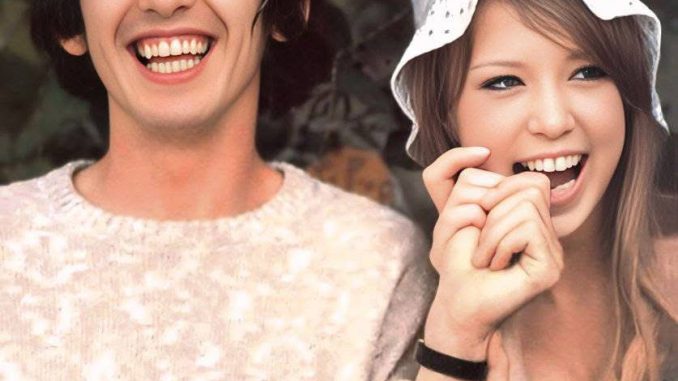
: How George Harrison Quietly Saved Billy Preston—and Countless Others
While George Harrison’s guitar gently wept, his heart worked tirelessly behind the scenes. Though best known as the “quiet Beatle,” Harrison’s legacy extends far beyond his music. Those who knew him personally often recall something far more profound: his unwavering generosity. Among the most powerful and enduring examples of this was his support for fellow musician Billy Preston—a man he once called his spiritual brother.
Preston, the keyboard virtuoso whose electrifying performances lit up The Beatles’ “Get Back” sessions, fell on hard times during the 1980s. At a moment when the music industry seemed to turn its back on him, it was Harrison who stepped forward—not with cameras, press releases, or charity galas, but with quiet, consistent acts of kindness that helped keep Preston afloat both personally and professionally.
🎹 From “Fifth Beatle” to Forgotten
Billy Preston’s journey with The Beatles began during the recording of Let It Be, where his gospel-infused keyboard playing brought a fresh, soulful energy to the sessions. John Lennon even famously quipped that Preston should be made the “Fifth Beatle.” His performance on “Don’t Let Me Down” and “Get Back” remains iconic to this day, making him the only musician besides the four Beatles to receive a co-credit on a single.
Through the 1970s, Preston enjoyed commercial success with hits like “Nothing from Nothing” and “Will It Go Round in Circles.” But by the 1980s, his career had faltered. Legal troubles, addiction, and financial strain sent him spiraling into a life of uncertainty.
🌤 George Steps In—Silently
As many in the industry kept their distance, wary of Preston’s public troubles, George Harrison refused to turn away. According to multiple friends and associates, Harrison not only stayed in touch with Billy during his darkest years but went further—covering medical bills, legal fees, and offering housing when Preston had nowhere else to go.
This wasn’t an isolated act of kindness. George had a long-standing pattern of supporting artists, often anonymously. He believed deeply in the value of music as a spiritual force and recognized the humanity of his fellow musicians, whether or not they were in the spotlight.
“He didn’t do it for the press,” one friend recalled. “He did it because he loved Billy—not just as a musician, but as a person. That’s just who George was.”
🕊 A Brother in Spirit
Harrison and Preston shared a deep spiritual connection. Both were seekers, drawn to the teachings of Eastern philosophy, soul music, and the idea that life held greater meaning than fame or chart positions.
George often called Billy his “spiritual brother,” and their friendship extended far beyond the studio. They prayed together, meditated together, and supported one another through personal trials. When Preston was later interviewed about those difficult years, he said plainly: “George helped save my life.”
It was a loyalty rarely seen in an industry that too often forgets its fallen heroes. For Harrison, however, loyalty was not about visibility—it was about presence. Being there when no one else was.
🎸 A Legacy of Quiet Giving
George Harrison’s generosity wasn’t limited to Billy Preston. Over the years, he quietly paid hospital bills for session musicians, helped fund addiction recovery programs, and personally supported struggling artists. He also orchestrated one of the first major benefit concerts in music history—the Concert for Bangladesh in 1971, which raised millions for refugees of the Bangladesh Liberation War.
That concert was more than a cultural milestone; it was a symbol of Harrison’s belief in music as a force for healing and justice. He used his platform not to elevate himself, but to elevate others. And he rarely sought recognition for it.
In a world addicted to self-promotion, George Harrison’s acts of anonymous compassion stand as a quiet form of resistance.
💬 The Music Industry Remembers
In recent years, artists who worked with Harrison have come forward with stories of his behind-the-scenes kindness. Whether it was Ravi Shankar, Tom Petty, or Eric Clapton, the consensus was always the same: George was someone who showed up, not for credit, but out of genuine care.
Billy Preston, before his death in 2006, frequently praised Harrison in interviews.
“George saw me when others wouldn’t. He heard me when I had no voice. He was more than a Beatle to me—he was family.”
🔁 Still Giving, Long After He’s Gone
In the years since his passing in 2001, Harrison’s charitable spirit has lived on through the Material World Foundation, which continues to support music education, disaster relief, and humanitarian causes. Much like its founder, the organization doesn’t make headlines—but it changes lives.
And today, as fans revisit the remastered Let It Be sessions or rewatch the Get Back documentary, they’re reminded not just of the music—but of the man who stood behind the keys, and the friend who stood behind him.
🙏 A Thank You That Echoes
As fans continue to discover these quiet stories, tributes pour in—not only for Harrison’s music, but for his character. One recent message that’s gone viral reads:
“Thank you, George. Not just for the music, but for the way you lived. For helping when no one was watching. For seeing light where others saw trouble.”
And in Preston’s life, that light may have made all the difference.
▶️ Watch Now – Explore rare behind-the-scenes footage of George Harrison and Billy Preston in the studio and on stage, and hear from those who witnessed their bond firsthand.
Would you like this formatted for a blog, magazine column, or spoken tribute? I can tailor it accordingly.
Leave a Reply